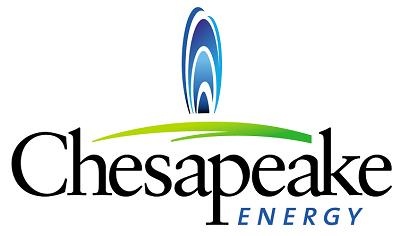NC lawmakers take a one-sided look at fracking

A group of North Carolina lawmakers is in Pennsylvania today on a fact-finding mission about the controversial method of extracting natural gas known as fracking -- and their tour guide is Chesapeake Energy, one of the nation's biggest fracking companies.
Reps. Mike Hager, Mitch Gillespie and Chuck McGrady -- all Republicans -- flew into Scranton, Pa. yesterday and today are scheduled to tour Bradford County, a major center of that state's natural gas industry. Here's what the trip's official itinerary says about the selection of the tour guide:
Chesapeake was chosen because they are the 2nd largest producer of US natural gas (in 1st qtr of 2011, they produced 2.7 billion cubic feet of gas per day), the #1 driller in US for past 20 years (more than 11,500 wells during past 20 years), the #1 driller of horizontal wells in the world (approx. 4100 wells), and the #1 producer of shale gas in the world (~1.7bcf/day during 3rd qtr 2011). Chesapeake is the #1 Marcellus leaseholder (1.72 million acres), the #1 Haynesville/Bossier (ArkLaTex region) leaseholder (500,000 acres), and #2 Barnett shale leaseholder (200,000 acres).
However, the one-page itinerary does not point out that Oklahoma-based Chesapeake has had serious environmental and workplace safety problems:
* In May of this year, Pennsylvania environmental regulators fined Chesapeake $900,000 for contaminating the drinking-water wells of 16 families. Regulators blamed the problem on improper well casing and cementing that allowed gas to migrate into groundwater.
* In April, a blowout at a Chesapeake gas well in Bradford County, Pa. sent tens of thousands of gallons of toxic fluids flowing over farmland and into a nearby creek.
* In February, an explosion at a Chesapeake operation in Washington County, Pa. sparked a large fire and injured three workers. The company was fined $188,000 for that incident.
* Last September, Pennsylvania environmental regulators began investigating the source of methane gas found bubbling from the Susquehanna River and six private drinking-water wells in Bradford County, concluding that nearby wells drilled by Chesapeake were the source of the problem.
* In March 2010, Chesapeake was fined $20,000 by Pennsylvania for withdrawing more water from public water supplies in Bradford and Sullivan counties than its permits allowed.
* Also last year, the Louisiana Department of Environmental Quality announced a settlement with Chesapeake Energy and contractor Schlumberger Technology requiring the companies to pay $22,000 each for the death of 17 heads of cattle near a gas drilling site in that state. A milky white substance flowed from the gas well and pooled in the pasture, and the cattle that drank it bled and foamed from the mouth and suffered a painful death.
* In 2009, Chesapeake and Schlumberger were fined for a fracking fluids spill in Pennsylvania that necessitated the excavation of 126 tons of contaminated soil.
Between 2008 and early 2011, Pennsylvania regulators alone cited Chesapeake for over 160 health and environmental safety violations. The company has also faced lawsuits for allegedly cheating landowners out of royalties and for violating securities laws.
North Carolina lawmakers are considering whether to allow fracking in the state, which currently bans the practice. Central North Carolina sits atop a major shale formation with the potential to hold rich natural gas deposits. The Republican-controlled legislature passed a bill earlier this year to allow fracking, but it was vetoed by Democratic Gov. Beverly Perdue.
Fracking involves pumping a mix of water and chemicals at high pressure into wells drilled thousands of feet underground. Among the chemicals used in the process are ethylbenzene, ethylene glycol, glutaraldehyde, isopropanol and methanol -- substances that have been linked to cancer and other health problems including respiratory, reproductive and immune disorders. Fracking has been linked to thousands of reports of groundwater contamination nationwide.
Last month month, Rep. Hager -- a leading fracking proponent who represents Cleveland and Rutherford counties in western North Carolina -- made another trip to Pennsylvania to visit fracking operations with Sen. Bob Rucho, a pro-fracking Republican who represents the Charlotte area. Chesapeake also reportedly served as the guide for that tour. So far, the lawmakers' offices have declined to release the itinerary for that trip despite repeated requests by Facing South.
Christine Brenco, an assistant to Rep. Hager, told Facing South that the October trip was "not paid for by the state." However, The News & Observer of Raleigh, N.C. reports that the state covered the cost of the rental car for that trip, so it was at least partially funded by taxpayers. Lawmakers reportedly paid for their own meals.
Earlier this month, N.C. Policy Watch and Clean Water for North Carolina sponsored a talk by two farmers from Bradford County, Pa. who have leased their land to Chesapeake for natural gas drilling and have experienced horrendous problems that have turned them into critics of the industry. They reported that once-prosperous farms in their area have lost 80 to 90 percent of their value because of fracking.
The only state lawmaker to attend that talk was Rep. McGrady -- a former president of the Sierra Club board of directors, and the only Republican who voted against the fracking bill.
Tags
Sue Sturgis
Sue is the former editorial director of Facing South and the Institute for Southern Studies.
